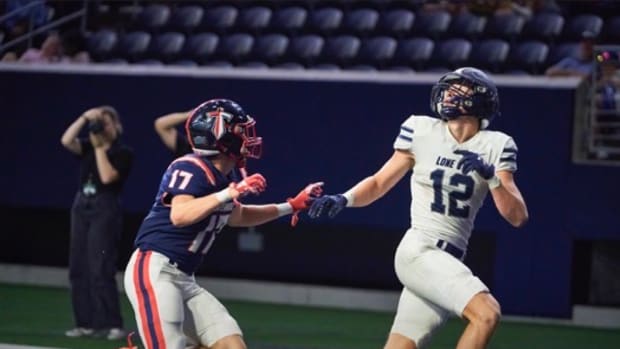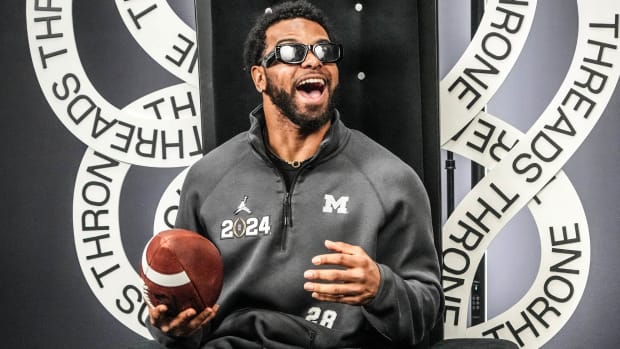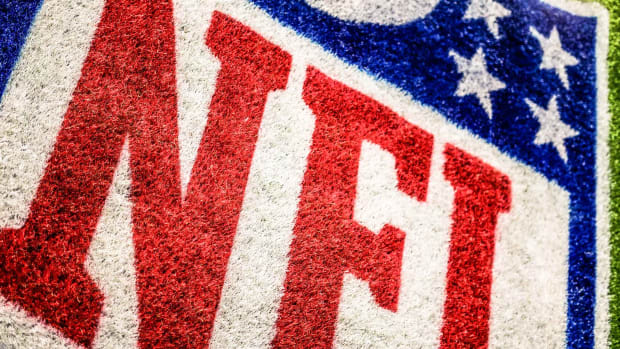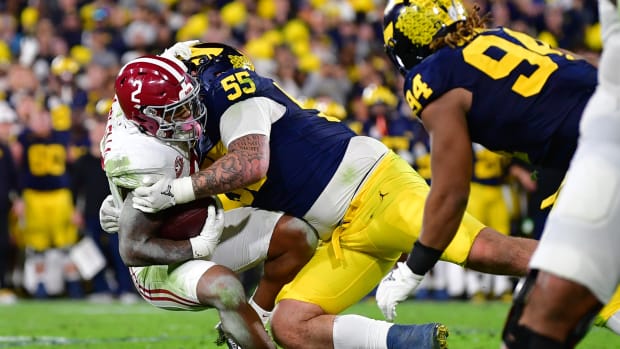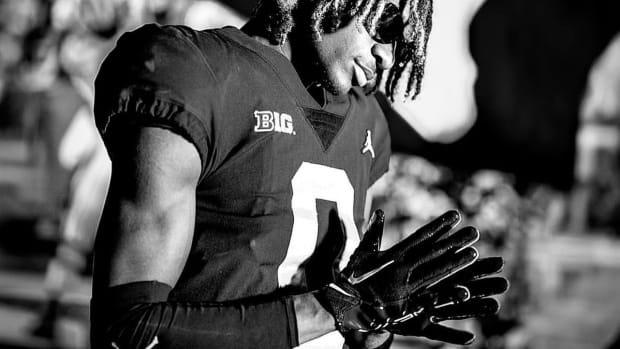Harbaugh Responds to Schembechler Controversy
It was only a matter of time before Michigan head football coach Jim Harbaugh would need to respond to the allegations against former Michigan head football coach Bo Schembechler. That time arrived on Thursday afternoon as Harbaugh finished delivering a speech at the Michigan Football Showcase held at Ferris State University.
Speaking with the media, Harbaugh made clear that the Bo Schembechler he knew was far different from what was indicated in a recent report detailing sexual abuse by former University of Michigan doctor Robert Anderson.
"Well, I can tell you this. Bo Schembecheler - there was nothing that I saw in the times that I was a kid here, my dad was on the staff, or that I played here - that he never sat on anything. He never procrastinated on anything. He took care of it before the sun went down, so that's the Bo Schembechler that I know. There was nothing that ever was swept under the rug or ignored. He addressed everything in a timely fashion. That's the Bo Schembechler that I know."
On May 11th, a year-long investigation had concluded with the release of a 240-page report describing the extensive sexual abuse by former University doctor Robert Anderson. Employed by the University from 1966-2003, Anderson's conduct can only be described as 'horrific'. Hundreds of former University of Michigan students came forward to participate in the investigation, each sharing their own painful experience with Anderson.
"Over the course of his thirty-seven years as a University employee, Dr. Anderson engaged in sexual misconduct with patients on countless occasions", a portion of the report read. "Dr. Anderson’s misconduct ranged from performing medically unnecessary hernia and rectal examinations on patients seeking treatment for wholly unrelated issues, to manually stimulating male patients and causing them to ejaculate, to quid pro quo arrangements in which he provided medical services in exchange for sexual contact."
While the report about Robert Anderson's actions was disturbing enough, perhaps just as disturbing was the complete inaction by University of Michigan officials - a pattern that, according to the report, ultimately allowed Anderson to continue his abuse for decades.
"The University received contemporaneous information about Dr. Anderson’s misconduct from multiple sources. A senior University administrator was told about Dr. Anderson’s misconduct several times between 1978 or 1979 and 1981 but did not take appropriate action. Concerning information was also shared with other University personnel. Although the information these individuals received varied in directness and specificity, Dr. Anderson’s misconduct may have been detected earlier and brought to an end if they had considered, understood, investigated, or elevated what they heard."
Though several names were mentioned throughout the report, one individual who was made aware of Dr. Anderson's conduct received the most attention - Bo Schembechler. Arguably the most powerful man at the University of Michigan throughout his tenure, Schembechler was certainly in a position to help bring Anderson's continued abuse to an end had he chosen to do so. Unfortunately, that didn't happen.
"A member of the football team in the late 1970s told DPSS that he received a genital examination from Dr. Anderson, who fondled his testicles, and a rectal examination, during which the student athlete pushed Dr. Anderson’s hand away. The student athlete told DPSS that he asked Mr. Schembechler “soon” after the exam, “What’s up with the finger in the butt treatment by Dr. Anderson?” According to the student athlete, Mr. Schembechler told him to “toughen up.” The student athlete told DPSS that “you do not mess with Bo, and the matter was dropped.” The student athlete, who is represented by counsel, declined our interview request."
Shortly after the report was released to the public by the University of Michigan Board of Regents, discussions surrounding Schembechler's presence around the University began to take place - primarily when it came to Schembechler Hall. Though no decision has been made by University officials at this time, it's hard to imagine any scenario that leads anywhere other than the removal of Schembechler's name and statue from the building - a reality that would have been unimaginable prior to the release of this report.
